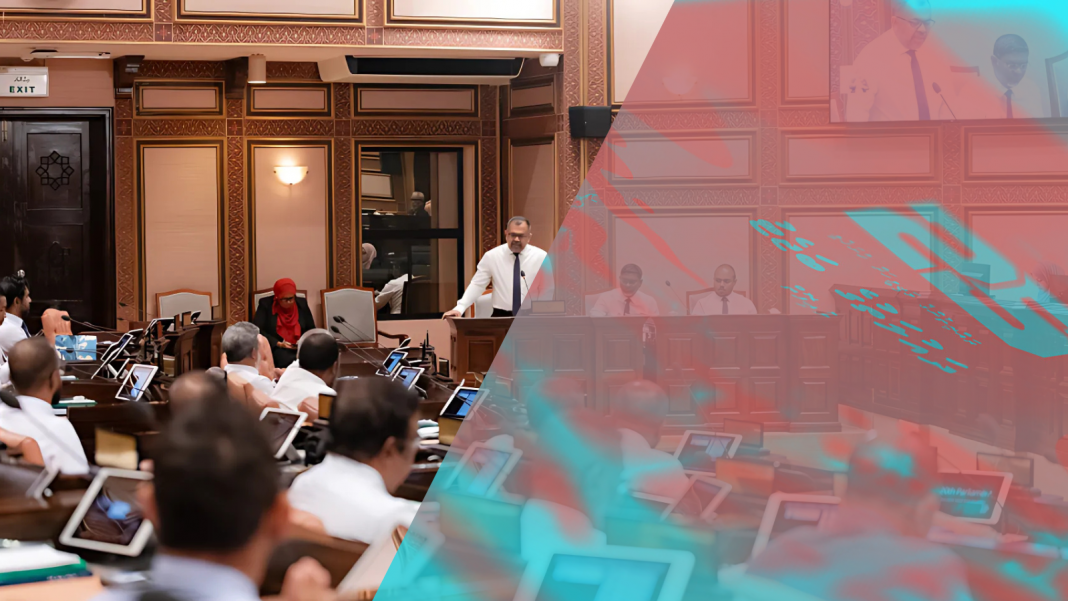The Maldives Parliament passed the 2025 state budget on Wednesday, totaling MVR 56.6 billion. However, the budget’s lack of clarity on how funds will be allocated has raised concerns about government transparency and its handling of the nation’s growing financial challenges.
Presented by Finance Minister Moosa Zameer on October 31, this year’s budget differs from previous ones by not providing specific allocations for individual projects. Instead, it offers a broad overview, leaving many questions unanswered, especially regarding infrastructure development, social welfare, and debt repayment.
This ambiguity has drawn criticism from opposition parties and even members of the ruling coalition. The Maldivian Democratic Party (MDP) has called for more transparency, asserting that the lack of specifics undermines the government’s accountability. Even the Maldives Development Alliance (MDA), aligned with the People’s National Congress (PNC), expressed dissatisfaction. Meedhoo MP Ahmed Siyam Mohamed urged the government to withdraw the budget and submit one with the necessary details.
To address these concerns, the Budget Committee proposed recommendations, including the submission of detailed information on government projects and quarterly updates on their progress. However, Husnee Mubarik, a ruling PNC MP, introduced a motion to exclude these recommendations, which passed with 68 votes in favor and 11 against, highlighting the ruling party’s resistance to further scrutiny. The budget was subsequently passed with a similar majority.
The lack of transparency is especially troubling given the Maldives’ fragile economic situation. The country faces mounting debt, with approximately USD 600 million in external debt due in 2025 and over USD 1 billion in 2026, including a USD 500 million sukuk. Rating agencies have downgraded the Maldives’ credit rating, citing the risk of default. The World Bank also warned in October that high public debt and fiscal spending remain significant problems.
As of early 2024, the Maldives’ total debt stood at USD 8.2 billion, 116% of the GDP, and this is expected to rise further. The Finance Ministry’s failure to provide a clear budget breakdown exacerbates uncertainty around how these obligations will be met.
Despite government claims that the budget will fund vital projects, the lack of specific allocations makes it unclear how these initiatives will be prioritized, especially amid such severe economic pressure. Although the government has promised fiscal reforms, such as reducing political appointees and raising taxes, it remains uncertain if these measures will address the core issues of public debt and fiscal mismanagement.
The passage of the 2025 budget without adequate transparency is a missed opportunity for the government to demonstrate fiscal responsibility. As the country faces mounting debt, the public has a right to know how their money is being spent and what steps are being taken to secure the nation’s financial future.


















